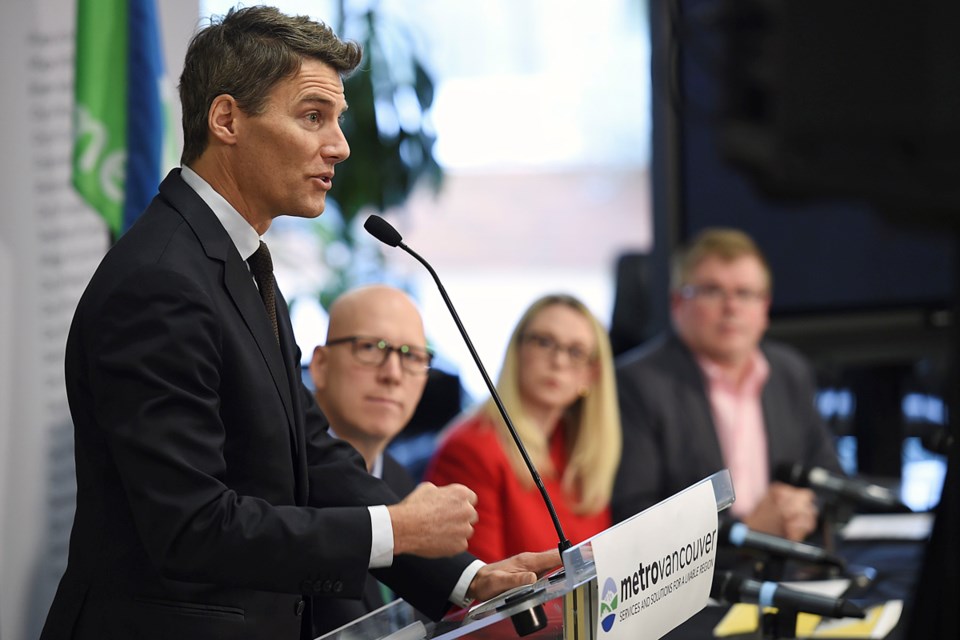As a matter of political survival, junior levels of government tend to stay on the sidelines when senior levels are in election mode. That’s because you can never be sure who is going to win and you know you will be at the mercy of who ever does.
So, the province usually doesn’t criticize the feds, and municipal leaders tend to keep their lips buttoned when either level above them is in the run-up to an election.
That is why what happened on Monday was so astounding. It all unfolded at a press conference by Metro’s mayors who issued a critical task force report on the current state of homelessness in Metro Vancouver.
Prompted by a question from my colleague Mike Howell, and with a provincial election mere months away, Vancouver Mayor Gregor Robertson laid the blame for the dramatic increase in homelessness squarely at the feet of Premier Christy Clark.
It was a political bridge burning exercise if ever there was one.
Robertson said for his first three years in the Vancouver mayor’s chair, beginning in 2008, the homeless situation in Vancouver improved with help from the province. Then Clark was elected in 2011 and ever since “it’s been a war on the poor” conducted by the province.
Meanwhile, he said, the province invests “billions and billions of dollars in projects of questionable merit.”
A half a dozen years ago, the homeless problem was one that primarily affected Vancouver. Now it has spread through the region and across the province. According to the mayors’ report (which was signed off on, by the way, by all the region’s mayors including ones in Surrey and Langley), there are now 70 homeless camps in Metro Vancouver. About 4,000 people are living in those camps as well as in shelters.
Many have significant health problems. The majority either use street drugs or have mental issues or both.
Maple Ridge Mayor Nicole Read, who co-chaired the task force with Robertson, criticized the province’s failure to raise the shelter allowance of $375 a month for the past 11 years, making it impossible for most to find any housing at that rate. She noted that “over time, losing housing creates a cycle of shame in our homeless population.”
The mayors are joining a growing chorus of critics who point out that British Columbia is the only jurisdiction in the county without a poverty reduction action plan. Newfoundland-Labrador is looked at as a model in the country for having raised welfare rates for single parents and adding PharmaCare and dental coverage.
Christy Clark continues to regale her supporters with news of B.C.’s best-in-the-country economy, record job growth, the lowest unemployment rate, a fifth year of budget surpluses and a $100-million prosperity fund.
In her address to the most recent B.C. Liberal convention, Clark told delegates, “We are fighting to make sure we have the means to look after people who are struggling.”
Meanwhile, the welfare rate for single people remains frozen at $610 a month.
We now have the second highest rate of poverty in the country after Nova Scotia. Child poverty, according to surveys by the advocacy group First Call, places us in the middle of the Canadian pack. In 2014 that included 82,960 kids in Metro Vancouver.
When Clark’s government is criticized for having no poverty reduction plan, they respond by saying that their job creation plan is just that. But the majority of children living in poverty live with parents or a parent who already has a job. And in Metro, they are faced with the fact that in the past 10 years child care costs have gone up 35 per cent and rents have increased by 26 per cent.
If parents are living on provincial government assistance or working minimum wage jobs, they are sinking deeper into poverty every year.
So the question is, how much impact will comments by Robertson and his fellow mayors have at the ballot box.
Will we see the premier who makes “war on the poor” while swanning around at $10,000-a-plate cash-for-access dinners, or the premier who is fighting for those who are struggling?
There is no doubt that Robertson and the others have hit the Liberals in a political weak spot and it is no wonder housing minister Rich Coleman is “flabbergasted.”



